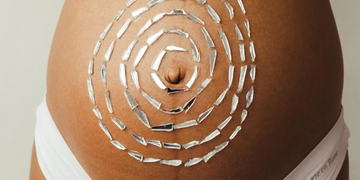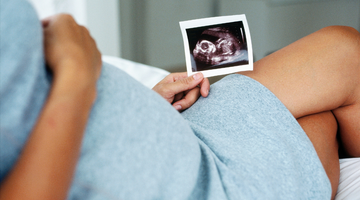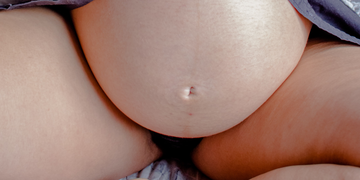The second trimester of pregnancy, explained

Pregnancy is not a one-size-fits-all experience, and you can never be too prepared. Let’s dive into everything you need to know about the second trimester of pregnancy and what to expect during this time, including fetal development, how your body can change, and more.
What is the second trimester of pregnancy?
There are 3 trimesters of pregnancy. Weeks 1-12 of pregnancy are known as the first trimester, beginning on the first day of your last period and ending at the end of the 12th week of pregnancy. The second trimester is the middle part of your pregnancy, from weeks 13-26. The third trimester begins at 27 weeks into pregnancy and ends when the baby is born, usually around the 40-week mark.
The baby’s development during the second trimester of pregnancy
The second trimester of pregnancy can be an exciting time for your growing baby. During weeks 13-26 of pregnancy, the fetus begins to kick, can hear your voice, and even develops reflexes like swallowing. The baby’s brain goes through the most development during the 5th month of pregnancy onwards, and fingerprints and toeprints are formed.
The fetus has developed all of its organs and the 6 major body systems (circulatory, respiratory, digestive, nervous, muscular, and skeletal) by the second trimester. This is when the baby starts growing in length and weight, which is why you might notice your baby bump growing. During the second trimester, the umbilical cord continues to thicken in order to provide the fetus with nourishment to grow. By the end of the second trimester, most babies are around 13-16 inches long and 2-3 pounds in weight.
Your body during the second trimester of pregnancy
Many pregnant people share that the second trimester is the most physically enjoyable and that they noticed a decrease in morning sickness and tiredness during this time. This makes sense, as the hCG hormone has decreased, and your body has adjusted to the new hormone levels.
The second trimester is an exciting time of pregnancy because you’ll likely start noticing your baby bump! At around 20 weeks into pregnancy, you may start to be able to feel the fetus moving (also known as quickening). Your baby bump also becomes visible around this time as the uterus expands to the height of the belly button. This can also cause the belly to be itchy.
How to take care of your body during the second trimester
For the entirety of pregnancy, it’s important to take care of your body to ensure healthy development for both you and the baby. Experts recommend taking prenatal vitamins since it can be challenging to provide the right nutritional balance through your diet alone during pregnancy. These supplements help fill nutritional gaps and keep you and your growing baby healthy. We recommend talking to your primary care physician about what to look for in a prenatal vitamin and what will work best for you. prenatal-multi-dha It’s also important to maintain a balanced diet and stay active during the second trimester. Research suggests that your body will need about 300 more calories than usual per day, so make sure you’re eating plenty of vegetables and fruits and staying hydrated with lots of water. Dental hygiene is also important during pregnancy — poor dental hygiene has been linked to premature labor.
Hormones and mental health during the second trimester
Pregnancy can put you through a roller coaster of emotions, so it’s important to prioritize your mental health throughout all three trimesters. Start by paying attention to how you feel during pregnancy, especially if you’re having feelings of doom due to impending parenthood, loss of joy in daily activities, or low self-esteem. These signs could indicate postpartum depression. Be as diligent as possible about tracking your mood, anxieties, and feelings.
During and after pregnancy your hormones change to help your body prepare for childbirth. Estrogen and progesterone rapidly increase up to 10 tenfold their original levels, which can be responsible for your changing mood. Progesterone is associated with relaxation, and the amount of progesterone increases in a pregnant person during the first three months of pregnancy. Throughout pregnancy, progesterone tells the body and muscles to relax, as one way to prevent contractions.
While relaxation may sound nice, this hormonal shift can leave some feeling fatigued or depressed. The first step is to have an honest conversation with your primary care physician about postpartum depression and how to create a plan to mitigate potential depression. Your feelings are valid, and with proper medical support, you should be able to access the mental health support you need.
Everyone’s pregnancy journey looks different, but the most important thing you can do is stay in the know and listen to your mind and body.
Questions? Reach out to hi@hellowinx.com for additional help. For more on pregnancy, reproductive health, and more, check out our content hub, Real Talk.
Keep Reading

The first trimester of pregnancy, explained
Jan 28

Why prenatal vitamins are important for prenatal development
Mar 8

The third trimester of pregnancy, explained
Jun 24








